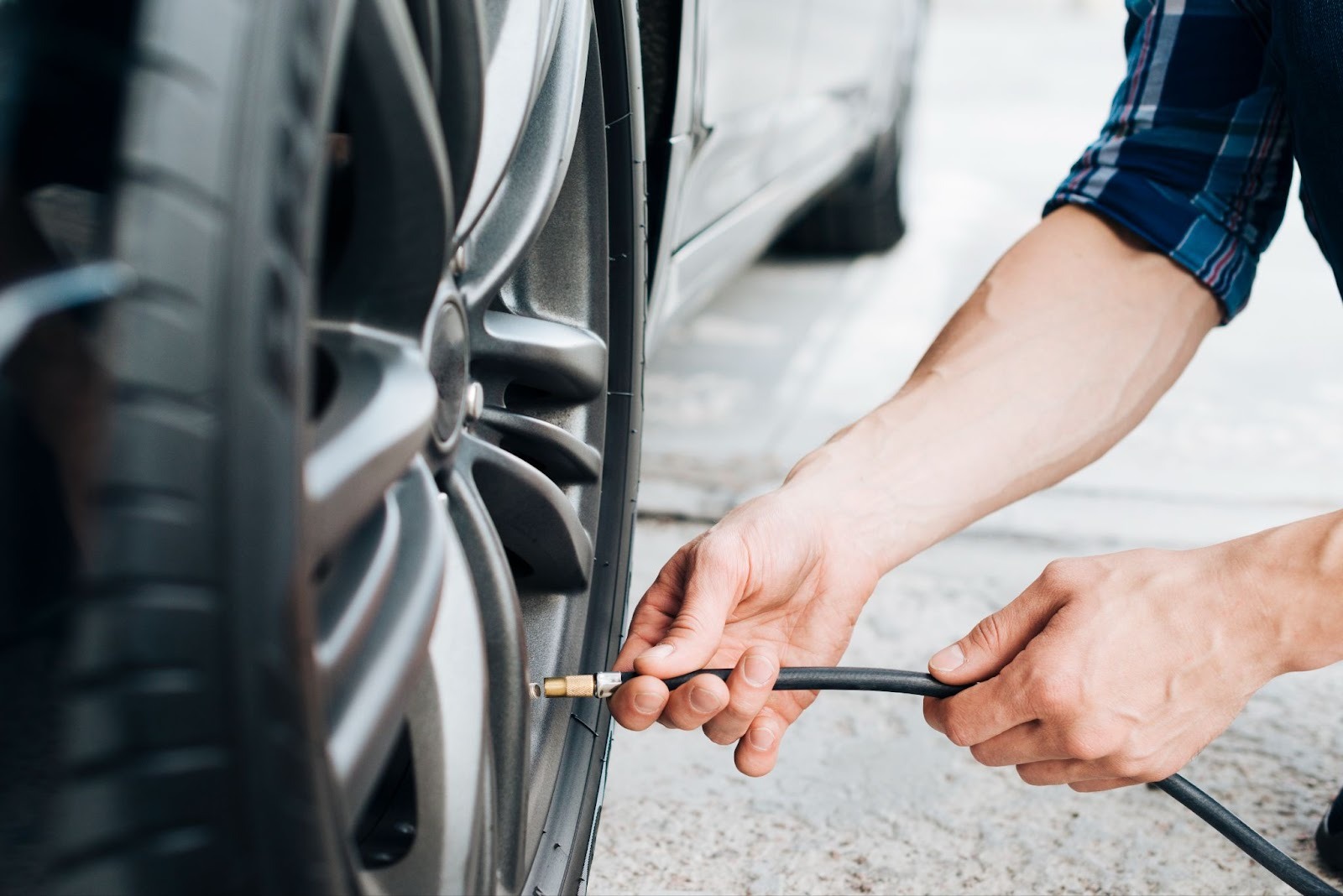Why Should You Care About Tire Pressure?

(Photo credit: freepik)
Inflating your car tires may seem like a minor task, but it directly affects driving safety and tire lifespan. Many people still wonder how much air pressure is appropriate for their tires and why tire pressure is so important. This article will help you understand the proper tire pressure for different vehicle types, along with essential maintenance tips you should know.
Why Should You Care About Tire Pressure?
Proper tire pressure doesn't just help your car run better—it affects several critical factors:
Safety: Correct tire pressure improves road grip, reduces braking distance, and prevents accidents from tire blowouts.
Fuel Economy: Under-inflated tires increase fuel consumption because they create more rolling resistance.
Tire Lifespan: Incorrect tire pressure causes uneven tire wear and premature deterioration.
Driving Performance: Proper pressure helps with easier vehicle control, better weight distribution, and more enjoyable driving.
How Much Should You Inflate Your Car Tires?
The ideal tire pressure depends on your vehicle type and load weight. Generally, it breaks down as follows:
Compact Sedans
Should maintain tire pressure at 25-30 pounds per square inch (PSI), suitable for vehicles like Honda City, Toyota Yaris, Mazda2, or similar compact sedans.
Mid-Size Sedans
Should maintain tire pressure at 30-35 PSI, appropriate for cars like Toyota Camry, Honda Accord, Mazda3, or small to mid-size SUVs.
Pickup Trucks (Unloaded)
Should maintain tire pressure at 35-40 PSI for pickup trucks like Ford Ranger, Toyota Hilux Revo, Mitsubishi Triton when driving without heavy cargo.
Vans or 7-10 Passenger Vehicles
Should maintain tire pressure at 43-55 PSI, suitable for vans like Toyota Commuter or large MPVs.
Important Note: Tire inflation should depend on the load weight and follow the specific vehicle manual recommendations. You can check the recommended tire pressure on the sticker located on the driver's side door frame or in your vehicle manual.
Dangers of Incorrect Tire Inflation
Over-Inflation
Reduces flexibility in road grip, cornering, and braking. It also causes more vehicle vibration, uncomfortable driving, and increased risk of tire blowouts at high speeds.
Under-Inflation
Increases fuel consumption beyond normal levels. Tires wear faster than usual, especially on the edges, and makes the vehicle harder to control, particularly when cornering.
How to Check Tire Pressure Correctly
Tire pressure should be checked regularly at least once a month or before long trips. Follow these steps:
Check When Tires Are Cold: Check tire pressure when the vehicle has been parked for at least 3 hours, or before driving more than 1-2 kilometers, as hot tires show higher pressure than actual.
Use an Accurate Gauge: Use a quality tire pressure gauge. Don't rely on visual inspection alone.
Check All 4 Wheels Simultaneously: Including the spare tire, as pressure in each wheel should be consistent.
Adjust Pressure as Needed: If tire pressure is below standard, add more air. If it's too high, release some air.
Car Tire Maintenance Tips
Check Regularly: Besides checking tire pressure, inspect tire tread depth and surface condition.
Rotate Tires: Rotate tire positions every 10,000-15,000 kilometers to ensure even wear.
Wheel Alignment: If your car pulls to one side while driving, get a wheel alignment to prevent abnormal wear.
Avoid Potholes and Obstacles: Protect tires and wheel rims from damage.
Conclusion
Proper car tire inflation is not something to overlook, as it directly impacts safety, driving performance, and long-term costs. The appropriate tire pressure varies depending on vehicle type and load weight, so always check your vehicle manual or the information sticker on your car door for accuracy. Regular tire pressure checks and consistent maintenance will help you travel safely and more economically.
Claim your free car valuation today!
Read More: Sell your car for the highest price in 24 hours
Looking for a car appraisal? You can contact us for a free car valuation within 24 hours…
